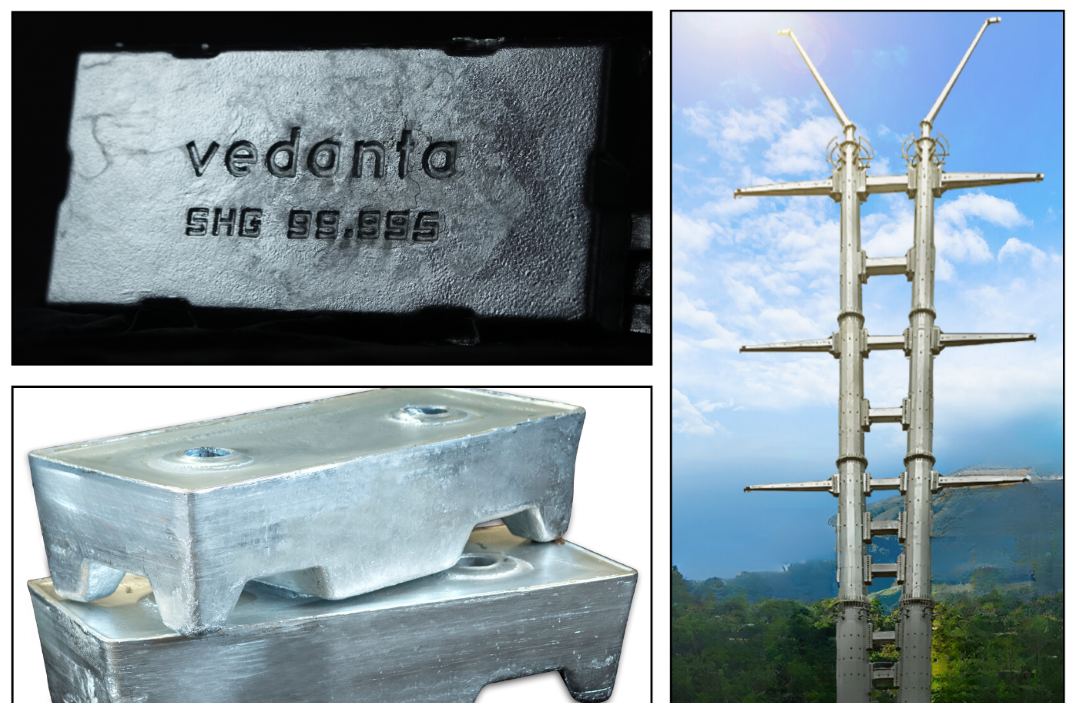In a major step towards promoting sustainable energy, Hindustan Zinc Limited, India’s largest and the world’s second-largest zinc producer, has signed a Memorandum of Understanding (MoU) with the Indian Institute of Technology Madras (IIT Madras) to develop a 1 kWh electrically-rechargeable Zinc-Air battery prototype. This collaboration aims to revolutionize energy storage solutions by leveraging zinc’s abundant availability, cost-effectiveness, and proven safety record.
Currently, lithium-ion batteries dominate the energy storage market, but their high costs, limited resources, and safety concerns present significant challenges. Zinc-based battery technologies offer a promising alternative, addressing these issues while providing a more sustainable and affordable solution.
Arun Misra, CEO of Hindustan Zinc, emphasized the role of zinc in the global energy transition, highlighting its potential as a more eco-friendly and economically viable substitute for lithium. He stated, “Our partnership with IIT Madras will push forward the research on zinc-air battery technology, reshaping the future of energy storage.”
Leading the research at IIT Madras is Prof. Aravind Kumar Chandiran, an expert in energy storage technologies. His team has already developed a prototype of the rechargeable Zinc-Air battery and holds patents in areas such as leak resistance and anode recharging. The collaboration focuses on improving zinc-air batteries for potential applications in renewable energy, data centers, and telecommunications.
Prof. Chandiran highlighted zinc-air batteries’ ability to overcome the limitations of existing technologies, especially for electric vehicles and stationary energy storage. He noted that the successful development of the prototype would boost India’s capabilities in advanced battery technologies and fuel further innovations.
Zinc-air batteries are emerging as a strong competitor to lithium-ion, offering advantages like long-duration storage, durability, and affordability. Zinc is four times cheaper than lithium and is already widely used in various applications, from toys to clocks, thanks to its stable chemistry dating back to the 1800s. Rechargeable zinc-based batteries have the potential to reshape sectors such as defense, aerospace, renewable energy, and critical infrastructure.
Prof. Manu Santhanam, Dean of Industrial Consultancy & Sponsored Research at IIT Madras, expressed enthusiasm about the partnership, noting that it aligns with India’s push towards self-reliant energy solutions. He praised the potential of zinc-air batteries to solve current energy storage challenges and create a greener future.
This collaboration follows Hindustan Zinc’s ongoing efforts in the battery storage space, including recent partnerships to develop zinc-ion and nickel-zinc battery technologies. Hindustan Zinc, a Vedanta Group company, supplies to over 40 countries and holds a 75% market share of India’s primary zinc market. The company, recognized for its sustainability efforts, continues to play a pivotal role in the global energy transition.







